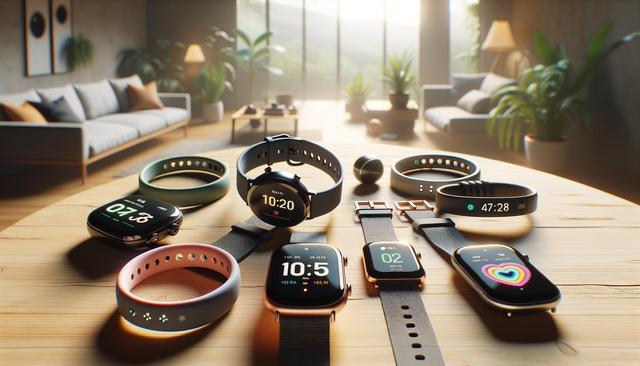The Rise of Smart Wearables
In recent years, smart wearables have transitioned from niche gadgets to mainstream accessories embraced by people across various age groups and lifestyles. These devices, which include smartwatches, fitness bands, and even smart rings, are designed to seamlessly integrate with daily routines, offering real-time insights into everything from physical activity to sleep quality. The appeal lies in their ability to provide continuous, passive tracking without requiring major lifestyle changes. As technology advances, wearables are becoming more compact, stylish, and feature-rich, making them both functional and fashionable.
The growing popularity of smart wearables can be attributed to several factors:
- Improved sensor accuracy and data analysis
- Increased awareness of personal health and fitness
- Integration with smartphones and other digital ecosystems
- Expanding applications beyond fitness, such as stress monitoring and productivity tracking
All of these factors contribute to a rising demand for smart wearables, not just as fitness companions, but as comprehensive daily tracking tools.
Personal Health Monitoring
One of the most valuable functions of smart wearables is their ability to monitor and track various health metrics. These include heart rate, blood oxygen levels, stress indicators, and sleep cycles. By collecting this data continuously, wearables provide users with a clear picture of their overall health and help identify patterns or changes that may require medical attention. For individuals managing chronic conditions, such as hypertension or diabetes, wearables serve as supportive tools that offer alerts and reminders related to medication, activity, and vital signs.
The real-time feedback offered by these devices encourages healthier habits. For example:
- Step counters motivate users to reach daily movement goals
- Sleep trackers encourage better nighttime routines
- Heart rate monitors help users understand their exercise intensity
By turning health data into actionable insights, smart wearables empower individuals to take a more proactive role in their well-being without frequent visits to healthcare professionals.
Enhancing Productivity and Daily Efficiency
Beyond physical health, smart wearables are being used to enhance productivity and streamline daily activities. Features such as calendar integration, message notifications, and voice assistants allow users to manage tasks more efficiently. These functions are particularly helpful for professionals and students who need to stay organized and responsive while on the move. The wrist-based convenience eliminates the need to constantly check smartphones, reducing distractions and helping users stay focused.
Some common productivity-enhancing features include:
- Real-time notifications for meetings and appointments
- Voice commands for hands-free control
- Reminders for to-do lists and hydration breaks
- GPS and navigation tools for efficient commuting
These capabilities make smart wearables more than just fitness gadgets—they become personal assistants that support users throughout their day.
Data-Driven Lifestyle Choices
One of the most compelling aspects of smart wearables is their ability to collect and analyze data that can influence lifestyle decisions. With long-term data tracking, users can identify trends and correlations that might otherwise go unnoticed. For instance, a person might discover that their productivity peaks after a full night’s sleep or that their resting heart rate improves following regular physical activity. Over time, this data becomes a personalized guide that helps users make informed decisions about their habits, routines, and goals.
The insights from wearables can influence:
- Diet and nutrition choices based on daily activity and metabolism
- Exercise routines tailored to personal performance metrics
- Stress management strategies aligned with mood tracking
- Sleep optimization through consistent bedtime analysis
By turning everyday metrics into meaningful insights, smart wearables are enabling users to live more intentional and balanced lives.
Challenges and Future Outlook
While the benefits of smart wearables are clear, there are also challenges to consider. Data privacy remains a top concern, as these devices collect sensitive health and location information. Ensuring secure data storage and transparent user agreements is essential for maintaining trust. Additionally, battery life and device durability continue to be areas for improvement. For some users, the cost of high-functioning wearables may also be a barrier to entry.
Despite these obstacles, the future of smart wearables is promising. Innovations in machine learning and artificial intelligence are expected to enhance the accuracy and predictive capabilities of these devices. Furthermore, the expansion of non-invasive health sensors could lead to wearables that monitor blood glucose levels or detect early signs of illness. As these technologies evolve, they will likely become more affordable and accessible to a broader audience.
Overall, smart wearables are poised to play a central role in how we understand and manage our health, productivity, and lifestyle in the years to come.






